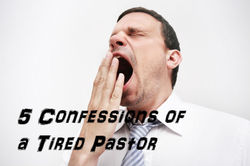
However, it ended a year earlier than we had anticipated.
I received a call from a mennonite psychologist while we were in Ecuador. He called and asked me to work for him, back at the same area where we had left. So, that meant that we could go back to our sending church. Yet, I fell into somewhat of a depression and had many doubts about whether I had heard God accurately about being a missionary.
So, there was depression in my life. There was also pride. I didn't want people thinking that we "couldn't make it" as missionaries. I also was angry with God for "putting us through" this experience as His call to go to Ecuador seemed so clear.
That's when a little plastic god entered my life.
Upon coming home, and being employed, we started to get credit card offers in the mail. We really did not believe in debt but with my depression, pride, and anger, I felt justified in using a credit card to get my family what they needed. We moved back home without any belongings except for what was in our suitcases. My thinking was, "we gave everything up for this call that God placed on our lives, and He didn't come through; therefore, I'm gonna have to do this myself."
Do you see the mistakes in my thinking there? GOD DIDN'T COME THRU (lack of trust) and I'M GONNA HAVE TO DO THIS MYSELF (self-sufficiency).
What's ironic though was that I wasn't self-sufficient. I was, instead, relying on a god made of plastic: Need a couch? Have the plastic god pay for it. Wanna go out to eat? Have the plastic god pay for it.
Did you know that "plastic" and "god" mean roughly the same thing? Plastic means, "false or superficial." Little "g" god mean "fake, not real, an idol. Something made with human hands." Jeremiah 10:5 says, "Like a scarecrow in a cucumber field, their idols cannot speak; they must be carried because they cannot walk."
My little plastic god couldn't speak or walk but I certainly became its servant. Proverbs 22:7b reminds us, "the borrower is servant to the lender." Moreover, by relying on my little plastic god, I was squeezing God out of my life. I was also squeezing myself out of opportunities for God to bless and care for me and my family.
My first thought could have been, "God we need a couch. We are counting on you to provide this for us."
Instead, my first thought was, "I can pay for that with my credit card and pay the bill over time."
For me, that was where the problem came. I learned to trust a piece of plastic rather than the God who made the universe who has all the resources I need.
James 4:2b is very clear, "You do not have because you do not ask God."
Over time, I came to see that I was not trusting God. However, it was too late. The card was maxed out. So, that meant that we had a long road to pay off this card.
As we came to the closing payoff, God drove the point home...
I called the credit card company to get a payoff. They told me the amount, and I put a check in the mail the next day. Well, a month later, we got a little surprise from the credit card company. We got another bill. Evidently, there was interest accrued between the time we were told the payoff and the time they received the payoff.
God was saying, "now that I got your attention, you will never be free unless you trust Me. Remember this."
So, we paid the interest and we were finally free from my little plastic god. Thank God.









 RSS Feed
RSS Feed